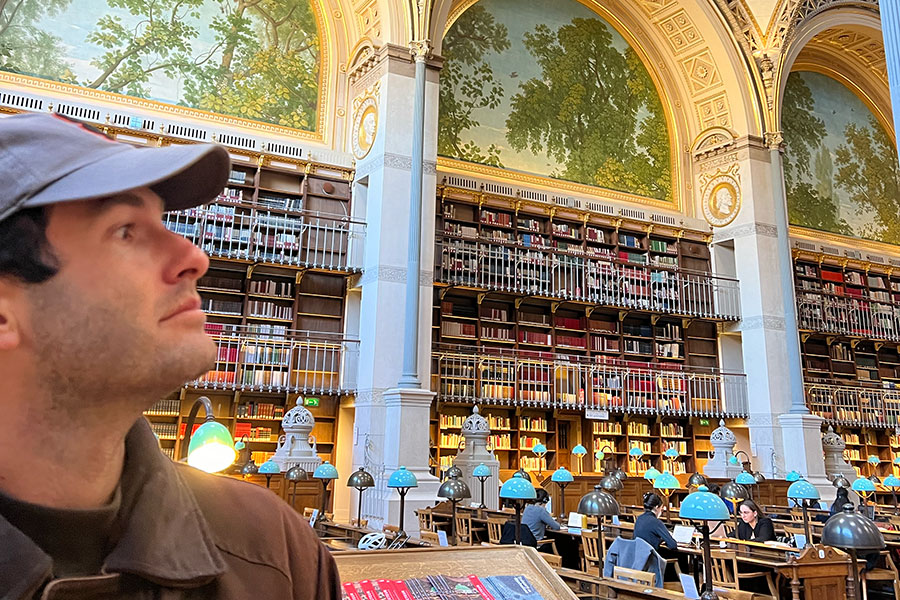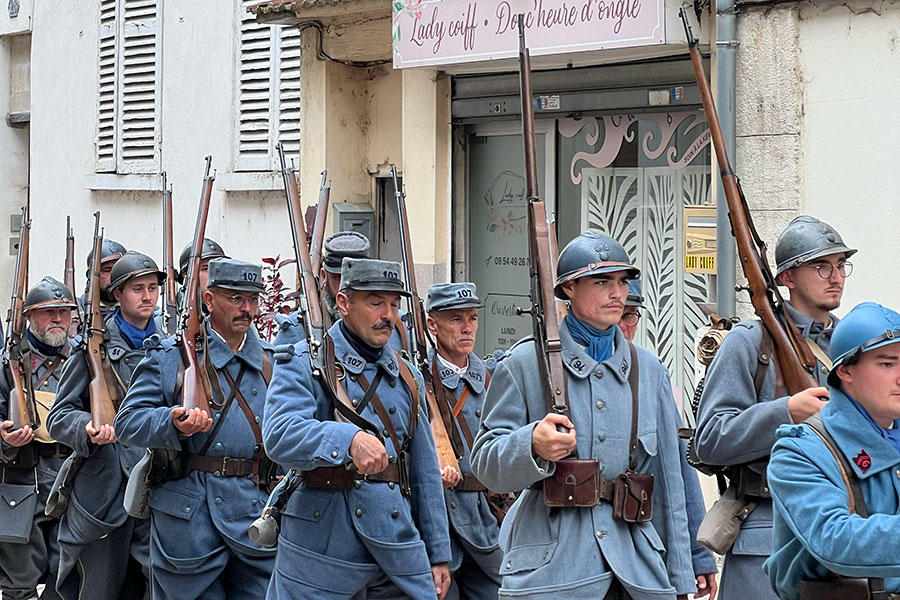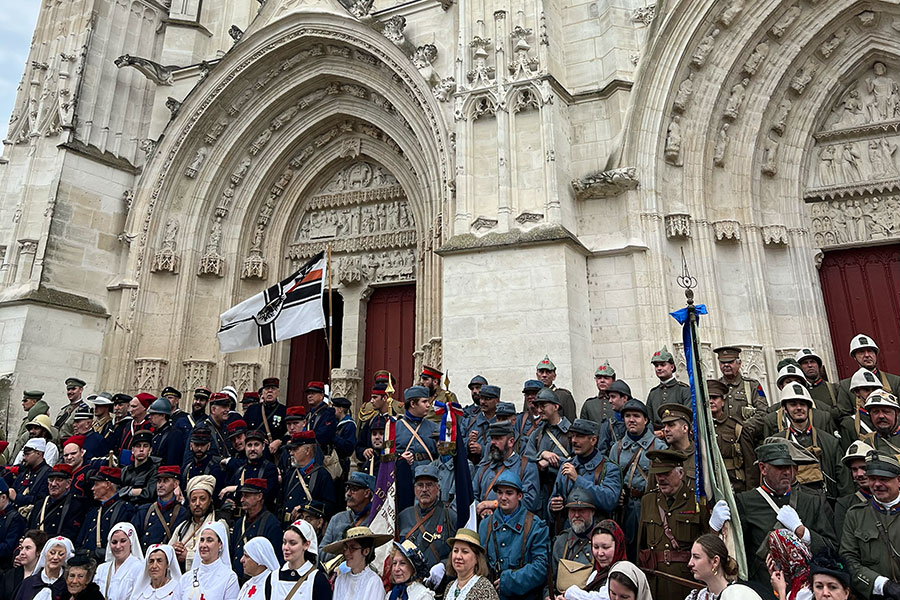
For many writers, completing a creative work involves countless revisions or even a full rewrite. Samuel Granoff, a doctoral candidate in the Department of English at Florida State University, had set aside his unfinished World War I novel until the Fulbright U.S. Student Program gave him the time, space and inspiration to start over.
Granoff spent 10 months in France after receiving the Université Paris-Saclay Doctoral Research Award and used the time to research and rewrite the novel, which examines the experience of World War I through both contemporary and historical lenses to explore how war, memory and identity intersect across time.
“As a writer, you often leave things in drawers and never look back at them,” said Granoff, who’s earning a doctorate in English literature with an emphasis on fiction writing. “The Fulbright has been this blessing that came down to give me another shot.”
The Fulbright Program, the flagship international educational exchange program sponsored by the U.S. government, is designed to increase understanding between U.S. citizens and people of other countries.
Fulbright U.S. Student Program grant recipients are selected based on academic or professional merit and demonstrated leadership potential in their fields, with the program operating in over 160 countries worldwide.
The primary source of funding is an annual appropriation made by Congress to the U.S. Department of State Bureau of Educational and Cultural Affairs. Participating governments, host institutions, corporations and foundations also provide support.
Granoff knew early in his graduate studies that he wanted to pursue a Fulbright to support a work of historical fiction. He reached out to the FSU Office of Graduate Fellowships and Awards and worked with Assistant Director Keith McCall, who helped Granoff select his best work for the application.
“We went through essay by essay, story by story, because you only get a couple pages to sell yourself to the program,” Granoff said. “Keith was really generous with his time and walked me through the entire process.”
A few years ago, Granoff wrote the first draft of a novel set largely in Paris during WWI. After deciding to revisit it, he applied for the Université Paris-Saclay Doctoral Research Award, which supports U.S. doctoral students conducting research for their dissertations at the university, a public research institution south of Paris.
At Paris-Saclay, Granoff conducted research at the Center for Cultural History of Contemporary Societies, a laboratory with a multidisciplinary approach to researching contemporary cultural history.
Granoff spent time there researching and re-imagining this work, which was originally set in 1917 and focused on a soldier who had deserted his post and assumed a different identity.
“It was a work that I couldn’t quite figure out,” he said.
Inspired by a World War I reenactment he witnessed on one of his first days in Paris, Granoff refocused his novel to explore how war is understood through contemporary identities and decided to set the first half in 2018.
“The best historical fiction still echoes into the present,” he said.
Granoff believes that traveling to France through the Fulbright Program was the last piece he needed to complete the novel.
“There’s so much value in being immersed in the culture and being able to chase down any research threads, just like that,” he said. “Life is research; it’s all material. Something I learned in this experience, which I thought I knew but absolutely didn’t, was how to keep my eyes to the sky and my nose to the ground to let those experiences come.”
He credits his Fulbright experience for helping to breathe new life into his work.
“I’ve started all over again, but I think that’s necessary, and the Fulbright award inspired that,” he said.
Granoff considers the program to be unparalleled in giving students and scholars the opportunity to add global perspectives to their work.
“I think what the Fulbright program is and what it can do is just unbeatable,” he said. “It’s existed for 80 years for a reason, and it’s partnered with 160 countries for a reason. And it gives you exactly what every artist wants, which is just the time to create your art”.
Granoff is slated to complete his doctorate and Fulbright fellowship this summer. In August, he starts a visiting teaching professorship at the University of Tennessee, Knoxville. He plans to continue writing and teaching, taking the lessons learned through his fellowship with him.
“If you have any urge to see the world, to make an impact and change the course of your life, do it. Don’t even think twice,” Granoff said. “You’ll never, ever regret it.”
Interested in applying for a Fulbright?
Graduate students: Contact Keith McCall, assistant director of the FSU Office of Graduate Fellowships and Awards, at kmccall2@fsu.edu.
Undergraduates: Contact Bonnie Garcia-Gloeckner, assistant director of the FSU Office of National Fellowships, at bjgarcia@fsu.edu.
Faculty: Contact Peggy Wright-Cleveland, director of FSU Faculty Development, at mwrightc@fsu.edu.





